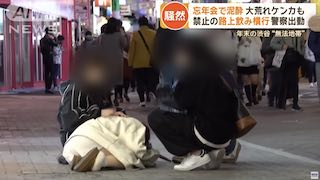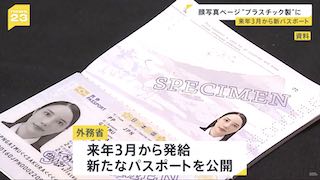May 30 (newsonjapan.com) - Denki Groove band member and actor Masanori Taki, who uses the stage name Pierre Taki, was arrested during the month of March for possessing and using cocaine.
He has since been recast as part of this scandal, especially his roles in the games Judgement and Kingdom Hearts III. He had his picture removed from a pothole cover in Fujieda City, in an effort of the Japanese to erase the artist from the entertainment industry of their country.
Perhaps the reason for the intense scrutiny of the actor and musician is due to his longevity in the entertainment industry in Japan. Masanori Taki has played everything in movies ranging from characters that are funny to those that are action-packed.
He has even used his voice to bring life to the popular character Olaf known to children worldwide thanks to the Frozen movie franchise by doing the voice in Kingdom Hearts III.
He has been the recipient of a Japan Academy Best Supporting Actor Nomination, thanks to his role in The Devil’s Path. The 2013 film had the actor playing a death-row convict and doing it very well. This breakout role made him highly sought-after for television and movie appearances.
His misstep regarding the use and possession of the drug cocaine have caused the huge uproar we mentioned earlier, and the industry is in a panic to erase him from the entertainment industry as a whole. His music is not being played on the radio, nor is information about Taki appearing on any Internet sites.
Indeed, cocaine is one of the most addictive drugs. Thousands of people and lots of celebrities die because of cocaine overdose each year. River Phoenix, Chris Farley, John Belushi, Layne Staley, Scott Weiland, and Whitney Houston are among the stars which cocaine was involved in their death.
The lack of seeing Taki on television has no doubt been the greatest loss. He was everywhere on TV; there was hardly any avoiding him. He had been the host of a TV Asahi program for nearly a decade and it has been cancelled as a result.
Taki even did the theme songs for the animes Hakaba Kitaro and did voices for the series Odenkun and Ganbare! Odenkun. He even used his talents as Denki Groove to perform songs for Pokémon the Move: The Power of Us and Eureka Seven, among other hit Japanese series.
His role on the television show Itaden distributed by NHK, a public broadcasting company in Japan, has also been cut. His scenes have all but disappeared from the television program, which is slated to be shown in the year 2019 as part of a lead up to the 2020 Summer Olympic Games, which has NHK as one of the main broadcasters.
This year-long drama about Japanese elite Olympians is popular. The network has also cancelled reruns of its 2013 series Amachan as well as Always, which have Taki as a supporting actor in both of the programs.
As far as the upcoming films for Taki go, he has not been cut completely from these works. He has been cancelled as the voice actor for Olaf in the upcoming Frozen 2 Japan release, and the scenes he did for a series called Iwane: Sword of Serenity are now redone using a different actor.
Even the popular video game maker Sega has chosen to temporarily halt the sales of the game Judgement (sometimes known as Judge Eyes: Shinigami no Yuigon) game for the PlayStation 4.
In the game, Taki lends his voice to a character in the video game whose likeness is based on the man who voices him. The game began shipping in Japan last December and will be doing so worldwide come June.
Some are fighting back. Kazuya Shiraishi, the director who had cast Taki for the three sequels to Devil’s Path, stated that his comedy film A Gambler’s Odyssey 2020 will remain unchanged. The comedy will feature Taki just as the film intended to.
Takumi Saito, a fellow actor, knew that at the press conference he gave about the film, Pierre Taki’s arrest would be a huge talking point. He stated that he was shocked when he first got the news about Taki’s transgressions, and also indicated he was glad that Toei, the studio in charge of the film, decided to go through with the release as planned as the cast and crew had really worked diligently to make the film great.
Another cast member, Becky, felt the same way and was relieved that the film would be released as planned. After all, it is a comedy and after all that hard work, laughter is deserved.
Career death is a huge problem in the Japanese entertainment world. Plenty of Japanese actors, singers and TV personalities have seen their careers grind to a halt when they are suddenly busted for having or using drugs, or any other crimes that are considered a major transgression.
Indeed, some others have suffered great damage. For instance, June 2 saw the arrest of Ryo Hashizume, who was picked up on charges of stimulants possession. The production committee of Tatara Samurai, a film in which the actor has a supporting role, decided that the film shall be removed from 280 theatres by June 9th.
Ryo’s father, who is also famous, issued a media statement in which he apologized for causing worry and trouble due to Ryo’s actions.
It is unfortunate to the actors, cast and crew that such hard work has to be pushed aside due to one person’s actions. The film cost a billion yen to make, and backers will lose lots of money as a result of this. Thus, the film will reopen in 23 cinemas across Japan on June 17th, but without the scenes containing Hashizume.
And yet, comebacks are a possibility. Consider director Toshiaki Toyoda, who was arrested for possession of stimulants in August of 2005. He served a suspended sentence for a total of three years and then bounced back into filmmaking with 2009’s The Blood of Rebirth and has continued to make moves ever since that day.
But not everyone else can be so lucky. Nori-P, a popular singer of the 1980s, had to rebuild her career from the ground up when she was convicted of being in possession of stimulants. She did resume her career, but not before re-emerging as an anti-drug campaigner and always knowing that her clean image was muddied.
Westerners may not quite understand why a studio, after having spent millions to make great quality movies, television shows and musical albums would stop the release of such material. After all, it is a huge loss of money and a disservice to all the other members of cast and crew.
This is a practice known as jishuku, or “self-restraintâ€. This has been a standard practice in the Japanese entertainment industry for years and years, but fans are beginning to fight back.
Online supporters of Pierre Taki have argued that the extreme punishment is unfair to him as well as his coworkers and colleagues, as well as his 30 years of hard work in the industry. 50,000 plus people have already signed an online petition for Sony Music to reverse its choice to take albums from Denki Groove off retail shelves and avoid the streaming of the band’s music.
However, the fans may not be the end-all, be-all, as Sony Music must comply with industry and legal standards as set forth by industry regulators and law enforcement. Keeping the music of an artist known to use dangerous drugs may bring forth negative attention.
After all, the police are already annoyed about the flippant attitude toward Taki’s transgressions. Taki was released on April 4 for 4 million yen, about $36,312USD. He made a quick appearance in front of the media, where he sincerely apologized. He acknowledged the worry he caused by his actions.
But within three weeks, Taki was at it again with a bandmate from Denki Groove, posing and smiling “until we were sweaty!â€
This made the police upset, as the tweet garnered 75,000 retweets and over a quarter million likes. It made them irritated as it was a public indication of the laissez-faire attitude from the public to Taki’s actions.
One Narcotics Control Department insider expressed concern that Taki would be accepted as though he had done nothing wrong. In doing so, the insider argued, young people believe they might be able to engage in a crime that is related to drugs.
The first public hearing for Pierre Taki will take place on June 5.














